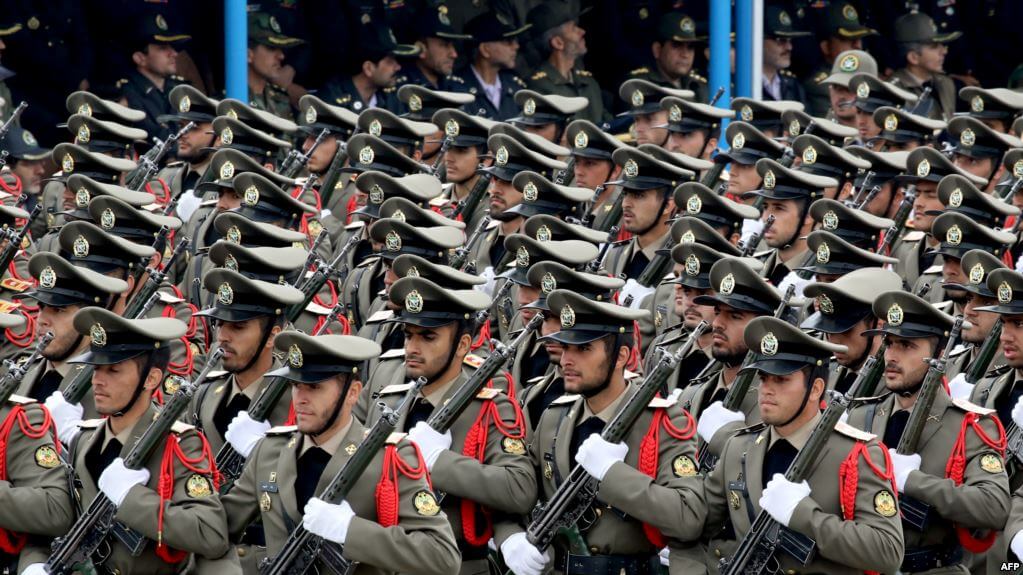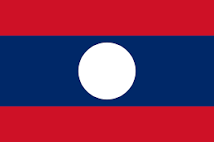April 19, 2019

Iranian soldiers march during a military parade as they mark the country’s annual army day in Tehran, April 18, 2019. Source: Radio Farda

The Trump administration announced on Wednesday their plans to restrict relations with Cuba, although the details of the restrictions remain unclear. This involves further limitations on non-family travel to the country, and the allowance of exiles to sue for property seized by the Castro government. This move, announced by secretary of state Mike Pompeo, was highly contested by officials in both Europe and Canada. John R. Bolton, national security advisor, cited the decision’s connection to Venezuela, saying, “The ‘troika of tyranny’ – Cuba, Venezuela, and Nicaragua, is beginning to crumble”.

The government of Gabon announced last week that classes would be suspended nationwide following a number of large protests by high school students. The protests began in late March when the government announced that funding for aspiring university students would be cut. The changes in funding sharply reduces the number of students eligible for the grant by raising the maximum age to 19 and requiring a higher mark on exams. Thousands of students have since been protesting regularly, and are not expected to stop anytime soon.

A group of 12 politicians in Bolivia wrote a letter to US President Donald Trump, asking him to prevent Bolivian President Evo Morales from running in their upcoming October 2019 elections. Morales is seeking a fourth term in office, having held his power position since 2006. Despite Morales’ open support of Venezuelan leader Nicolas Maduro, the Trump administration has yet to make a strong comment regarding Evo Morales’ seeking a fourth term.

One year has passed since anti-government protests began in Nicaragua, and there is still no end to the government crackdown in sight. This week, the UN announced that since the protests broke out a year ago, over 60,000 people have been forced to flee their homes fearing persecution or death. Many of these people have applied for asylum in Costa Rica, who maintains an open-door policy for migrants and refugees, but has had their resources stretched thin with nearly 30,000 applications. Despite Maduro’s promises of releasing political prisoners and allowing peaceful protests, he has yet to follow through with action. Meanwhile, the United States announced on Wednesday that sanctions against Nicaragua, as well as Cuba and Venezuela, would be increased in response to Venezuela’s continuing crisis.

North Korea admitted this week that they tested a new tactical weapon on Wednesday. Just hours after the release of the test, North Korea’s Foreign Ministry official Kwon Jong Gun stated Pompeo had been, “letting loose reckless remarks and sophism of all kinds against us every day”. Pompeo was one of the primary supporters of the failed denuclearization talks held in February between President Donald Trump and North Korean leader Kim Jong-un.

Two currently imprisoned Myanmar journalists for Reuters were awarded the Pulitzer prize this week. Reuters was given the award with special recognition for the two men: Wa Lone and Kyaw Soe Oo for their “explosive” investigation into the military-led campaign of killing Rohingya people beginning in 2017. Despite more than 720,000 Rohingya minority Muslims being forced to flee the country, the government still denies all human rights abuses. The imprisoned journalists are serving seven years in one of Myanmar’s most notorious prisons for the crime of “exposing state secrets”.

The long-anticipated Mueller report was released to the public on Thursday, April 18. Prior to the release, Attorney General William Barr held a press conference in which he defended his conclusion that there was not sufficient evidence to prosecute an obstruction case.
The 448-page document is the culmination of special counsel Robert Mueller’s two-year investigation into President Donald Trump’s obstruction of justice in his potential collusion with Russia during his campaign for presidency. While the special counsel’s investigation found that members of the Trump campaign were aware that they would benefit from Russia’s illegal actions, they also stated that neither Trump nor other Americans working with him took criminal steps to help this process. Mueller also made it clear that in his report that Congress could choose to continue to investigate President Trump.
The United States is considered to be a “problematic” country for journalists, as its ranking position declined in the Reporters Without Borders’ annual World Press Freedom Index. The United States was ranked below Romania, Chile, and Botswana. Trump has openly denounced certain news outlets, and the White House has begun to implement new security measures as newsrooms have been targeted with bomb threats.

Pressure from the EU is continuing to grow as the European body investigates and monitors human rights abuses taking place in Cambodia. This year-long investigation began in February, when the EU announced that without significant reforms, Cambodia would lose its preferential trading status with the EU – seriously hurting Cambodia’s economy. Prime Minister Hun Sen still has yet to respond to the warnings, and businesses within the country are beginning to grow concerned about the lack of progress. On April 4, these businesses wrote a letter to the Prime Minister addressing these concerns and urging him to take action, though a response has not been received.

A Department of Homeland Security spokesperson announced the Trump administration’s decision to continue the controversial “Remain in Mexico” policy. The policy demands that non-Mexican migrants claiming asylum at ports of entry along the southern border to remain in Mexico while their cases undergo processing in the United States. Mexico’s treatment of migrants is far from ideal as they are unable to accommodate the sudden increase of arrivals. Data reviewed by Reuters showed that in March 12,746 undocumented migrants were detained, a number that shows a 2/3 increase since January of the same year. There are hundreds of people stuck in reportedly unsanitary camps. Analysts cite the reasoning for such harsh conditions being pressure from the United States government.

The Minister of Youth, Sports, and Community Empowerment Ahmed Mahloof returned to his duties this week, two months after being suspended in the country’s biggest corruption scandal. Mahloof was one of many named in a report looking into the theft of nearly $90 million by the Anti-Corruption Commission. Mahloof was asked in February to stay home until the investigation had ended, but was released by police and cleared of involvement this week.

This week, experts met in Washington to discuss the process of imposing sanctions on Zimbabwe, and whether it is an effective move for the country. Panelists of the discussions confronted both the United States and members of the European Union with their imposed sanctions on Zimbabwe, specifically how they were more harmful to the country’s economic progression. Panelists stated that the imposed sanctions were more harmful to citizens of Zimbabwe than they were to the political regime and that a new implemented system would be necessary.

As funding falls short, efforts to clear bombs leftover in Laos from the United States bombing during the Vietnam War will slow. Most years, the organization that works to remove the bombs receives at least $2 million from foreign donors. This year, they received half of that. With such a sharp drop in funding, the organizations had to cut 60 workers and a significant amount of equipment necessary for the efforts. Without proper funding for removal of the “unexploded ordnance”, civilians, and especially children, are at risk. It is estimated that 20,000 people have been killed or injured by the explosives, and it will take many more decades to remove them all.

Ebola continues to worsen in the DRC, and has now claimed at least 700 lives in its second outbreak in the country. A vaccine has been developed, but still around 1,000 people living in the DRC have been infected. The Red Cross and Doctors Without Borders have claimed that international response has been weak, and more has to be done to control the spread of the virus. The World Health Organization blames security concerns, as health centers have seen an increase of attacks, making sustained treatment impossible.

Despite peace efforts, recent reports from the United Nations show that violence is on the rise in Colombia, especially in provinces where the state presence is nearly nonexistent. This trend has been taking place since 2017, with homicides increasing by 64% and civilian injuries from conflict up by 75% just in 2019. Reports of torture and sexual violence have also increased by over 200% each in 2019, though both of these are frequently under-reported. Within the first two months of 2019, at least 2000 people have also been displaced due to violence or mass expulsions by armed groups. Most of the violence and displacements are taking place in areas under control of FARC, who is fiercely opposed by Colombia’s current president Ivan Duque.

The Trump administration announced sanctions on the Central Bank of Venezuela on Wednesday, which will make United States currency completely inaccessible, and make the international financial transactions difficult to conduct. The United States continues to support Juan Guaido as the president of Venezuela, and implemented sanctions are designed to restrict finances of opposition Nicolas Maduro.
Humanitarian aid will not be restricted, as Red Cross volunteers distributed the first shipment of emergency aid on Tuesday in the neighborhood of Catia. Aid included water purification tablets and empty plastic jugs. Government supports fired gunshots into the air as the van arrived, and police were needed to maintain order in the area as the aid created a small commotion. Maduro previously did not accept humanitarian aid, saying, “We aren’t beggars”, but accepted this shipment citing that it coincided with “international protocols”.

Iranian President Hassan Rouhani made a statement this week calling on countries across the Middle East to “unite against the United States”. Rouhani also called out Israel in his address, saying that it and the United States are the the root cause of the region’s problems. After a display of its military power through missiles, armored vehicles, submarines, radars, and defense system, Rouhani made it clear that its armed forces are not a threat to its neighbors in the region. The speech came just a few days after the United States designated Iran’s Revolutionary Guards as a terrorist organization – to which Iran responded by calling all U.S. troops in the region terrorists as well.
Saudi Arabia – Two prominent women’s rights activists arrested in May 2018 have had their trials postponed by a court in Saudi Arabia, due to “private reasons”. The women were fighting for the rights to drive as well as protesting the male guardianship system of the country. Allegations have been made regarding the treatment of the activists in prison, pointing to counts of torture of the women. The UN Human Rights Council demanded their release in March, including a signed statement of support from 30 countries. (BBC)
Peru – Peru’s former president Alan Garcia killed himself Wednesday shortly after police had arrived at his home to arrest him for corruption charges. Garcia had been accused of taking bribes from the Brazilian construction company Odebrecht, who has admitted to paying $30 million in bribes within Peru since 2004. The former president had maintained that he was not guilty, and the victim of a political persecution. (BBC)
Indonesia – Indonesia’s presidential election has concluded with unofficial results showing current president Joko Widodo, commonly known as Jokowi, winning a second term. In response to the results, the National Police Chief has strongly warned against protests coming from supporters of Jokowi’s rival. Because this will be Jokowi’s final term, many hope that he will make more sweeping reforms than in his first term without the fear of reelection. (CNBC)